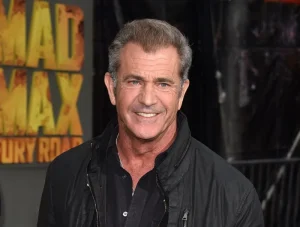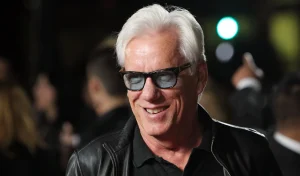In a groundbreaking development within the entertainment industry, veteran actor James Woods has officially parted ways with Hollywood to align with Mel Gibson’s newly established non-woke film studio. This decision signals a major shift for Woods, who has long been known for his outspoken conservative views in a predominantly liberal Hollywood.
James Woods, acclaimed for his sharp intelligence and often controversial political stances, has felt increasingly alienated by mainstream Hollywood, which he views as excessively politically correct and restrictive. Over the years, his career has been marred by numerous confrontations and disagreements with industry peers, resulting in fewer appearances in mainstream films.
Joining Mel Gibson’s studio is more than just a career move for Woods; it’s a statement. Gibson, who has faced his own share of controversies in Hollywood, announced the creation of this new studio last year. He promised a space for creative freedom, free from what he describes as the “censorship” of modern woke culture. The studio aims to produce films that embrace traditional storytelling, avoiding contemporary political pressures.
Gibson envisions the studio as a platform for films that focus on universal themes of heroism, conflict, and triumph, without the imposition of modern political ideologies that he believes can alienate audiences. This vision has attracted several conservative actors and filmmakers who feel marginalized by current industry norms.
For Woods, this move offers an opportunity to rejuvenate his career in an environment that values his outspoken nature and artistic vision. “I am excited to be part of a community that prioritizes storytelling and genuine artistic expression,” Woods stated during the press conference announcing his arrival at the studio.

The response to Woods’ move has been mixed. Many conservative voices have praised his decision as a courageous stand against Hollywood conformity. However, some industry insiders warn that this split could deepen cultural divisions within the arts community. Critics of the non-woke studio concept argue that it might limit the diversity of perspectives that films can offer by favoring certain viewpoints.
Supporters, however, contend that such a studio is essential for maintaining artistic diversity in an increasingly homogeneous industry. They argue that Hollywood’s liberal bias has stifled creative freedom, and the existence of studios like Gibson’s provides a necessary counterbalance.




